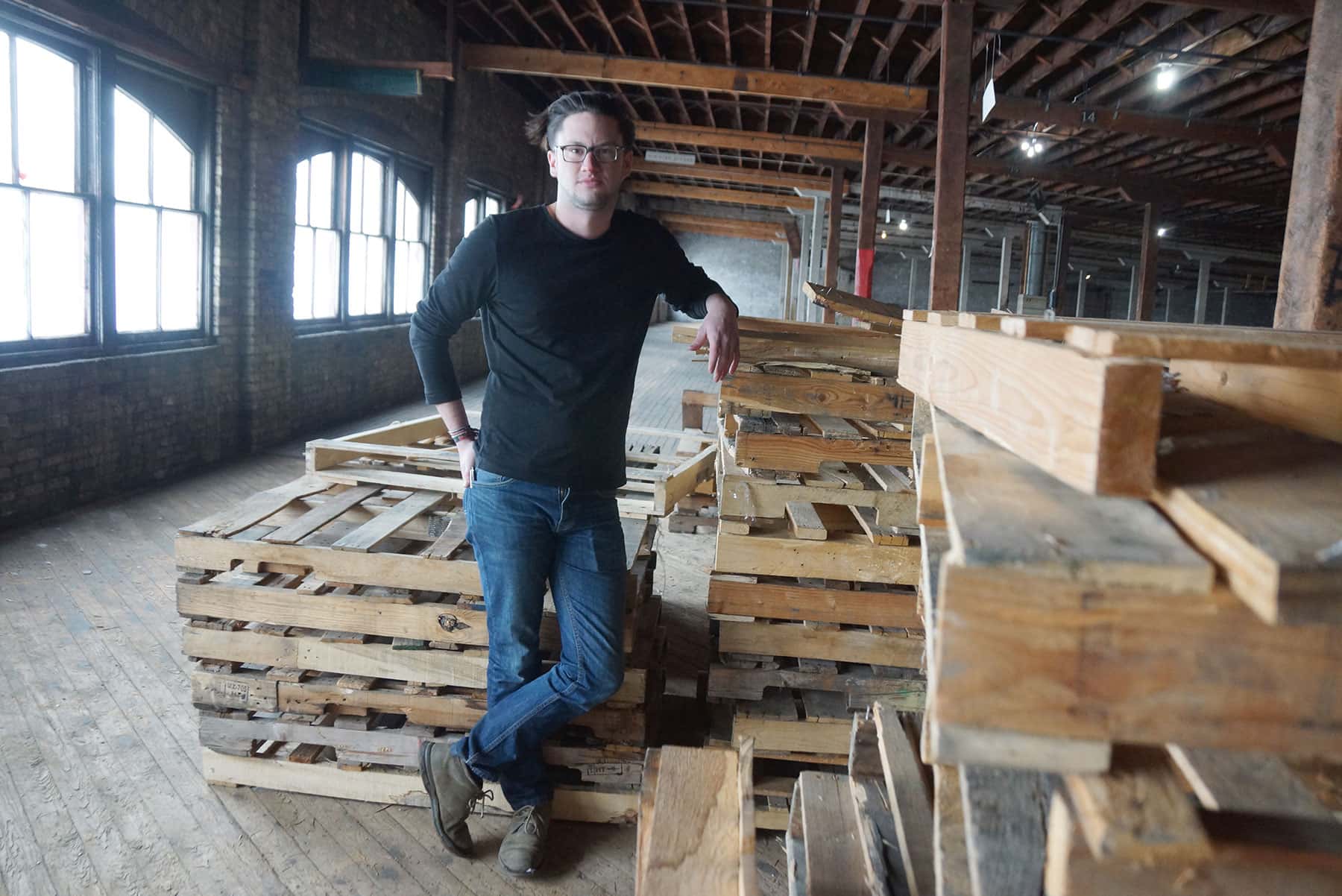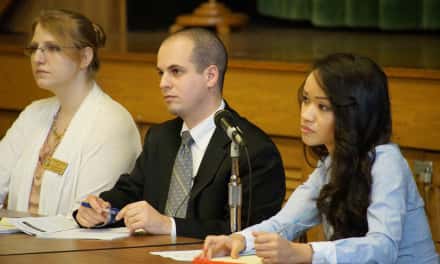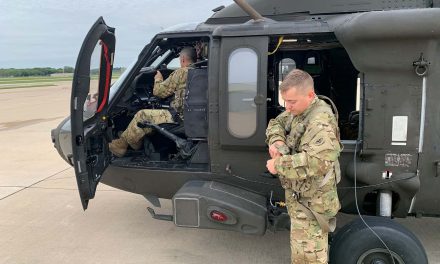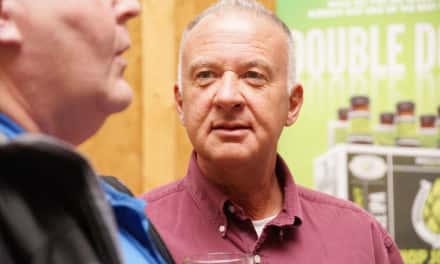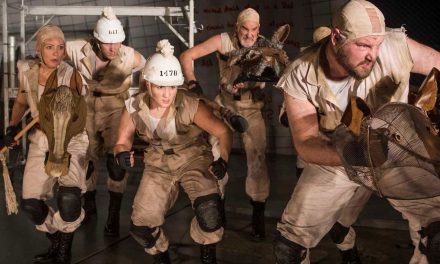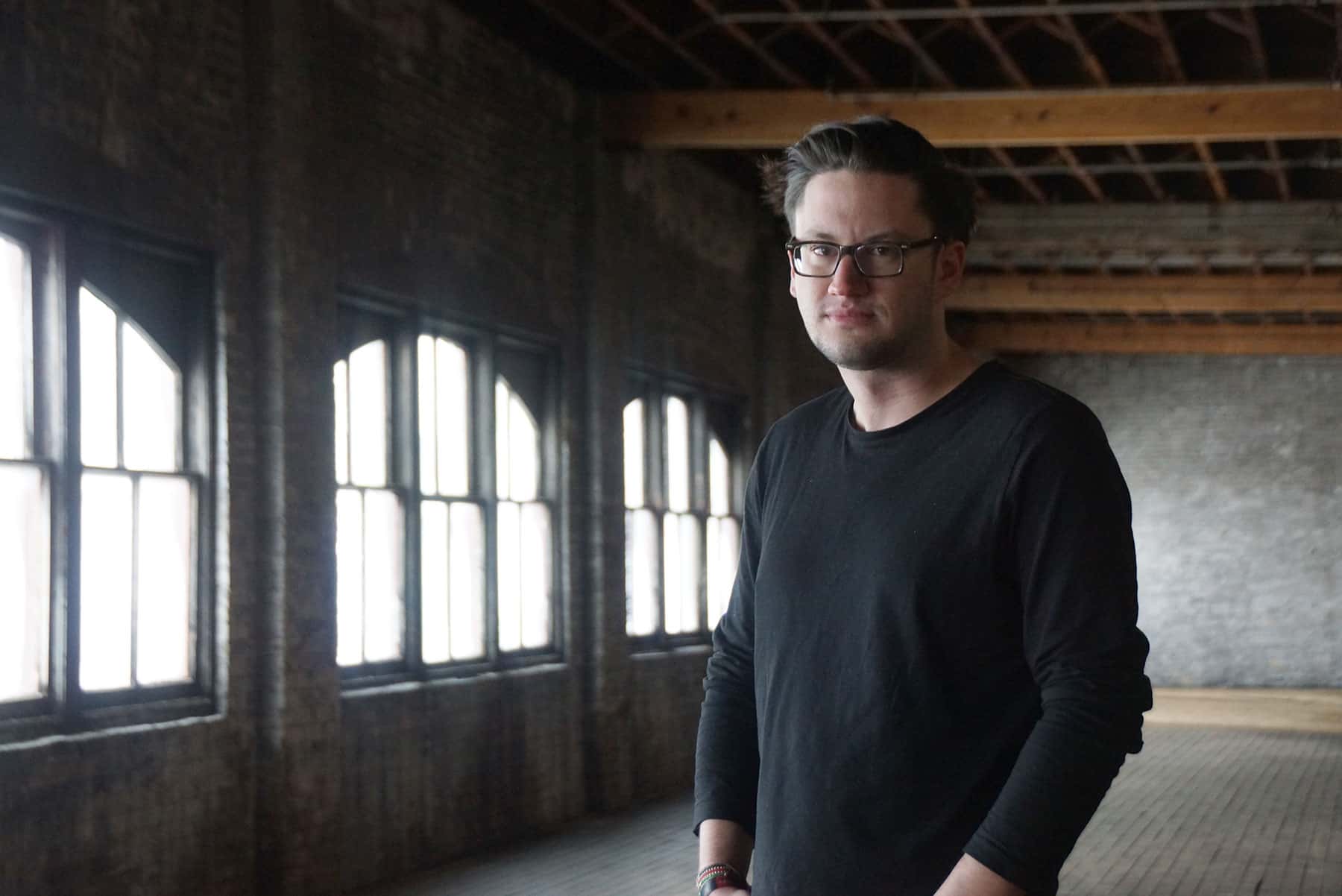
While his mission has taken him around the world to establish computer labs in impoverished countries, he sees a dire need for technology help at home.
A chance eMail while a student at the Milwaukee School of Engineering led Jeff Hanson to start a Milwaukee non-profit to reduce e-waste and remove barriers in the digital divide.
Q&A with Jeff Hanson
Milwaukee Independent: You started Project Community Computers while a student at the Milwaukee School of Engineering. What motivated you to develop this idea?
Jeff Hanson: I signed up for a servant leadership project at MSOE that involved traveling to Kenya to help establish a computer lab, my freshman year. We learned a lot on this project. After coming back to Milwaukee, I realized that there was similar need for nonprofits here in Milwaukee. Starting from square one each time can be a waste of time and resources that those companies can put towards the development of the actual business. We needed to make it easier for companies to responsibly donate their tech so there wasn’t such a focus on finding resources or reinventing the wheel for every project.
Milwaukee Independent: How did Project Community Computers evolve into Digital Bridge?
Jeff Hanson: Project CC was just that, a project, a student organization. We were making a great impact and had something good going. But when I graduated I realized we needed to take it to the next level and form a serious organization around bridging the divide. So Digital Bridge is the 501c3 organization that formed out of the Student org.
Milwaukee Independent: You have personally made many trips around the world to set-up computer labs. What is the biggest lesson you learned during these travels?
Jeff Hanson: Getting people to work with technology is more about working with the people than working with the actual tech equipment. Getting tech to people is the easy part. Determining how to utilize it, educating, training, and integrating into someone’s life is most of the work. The biggest lesson learned from all these travels is just how much of a divide we have right here in Milwaukee. We have the most segregated city in the U.S., and technology is a big part of that segregation. When a whole region or country is behind in technology it isn’t effecting individuals as much as when a city itself is greatly divided. We have the latest and greatest tech here in Milwaukee, but there are so many people living just down the street with none. When you’re expected to use tech and the internet in your everyday life, you’re that much more behind without it.
Milwaukee Independent: How many computer labs have you established in what countries? And how was this technology accepted?
Jeff Hanson: We have roughly 20 computer labs the U.S, Jamaica, Cameroon, Sierra Leone, Kenya, India, China, and more. It was always accepted well, but there can be a challenge after accepting. The groups we support have to learn how to use the equipment. It’s the follow through that really counts. We can’t just get a photo of a bunch of excited kids with laptops and say we were successful.
Milwaukee Independent: In addition to impoverished countries, what efforts have you made to bring technology to people in need closer to home?
Jeff Hanson: It is important to do things locally and theoretically easier to put labs closer to home. There is actually a bigger digital divide here in Milwaukee than there is in developing countries. At home the divide is between downtown and the interstate. That’s why we can have such a big impact here in Milwaukee.
Milwaukee Independent: What impact do you see technology has had on the people you help?
Jeff Hanson: Technology impact is hard to measure because it can affect people in different ways, and over a long period of time. Immediate impacts include, finding jobs that require basic computer skills, connecting with family and friends over the internet, access to more information, applying for jobs online, doing school work without needing to travel or have time constraints. Someone like my friend Abraham Gonzales didn’t have to go to the library every day and was unable to save his work. Just by having access to technology doesn’t mean it’s convenient or efficient.
Recently I talked with a group that does regular work in Uganda. They had dropped off some laptops for us to check out, and were very concerned about how many they would be able to get working out of the lot. Once I told them we would be able to supply however many computers needed for the project they seemed taken aback. You could see their mindset shift from finding the resources to the overall project and end goal. That seemed to be the real success to me, because I know that organization is going to be able to have a greater impact because of us.
Milwaukee Independent: Have you experienced any set-backs and if so what did the experience teach you?
Jeff Hanson: There have been countless setbacks in the sense of this being a start-up, and also in the sense of it being a not-for-profit organization. That combination makes business operations a bit tricky. There’s obviously a lot of perseverance and continuing to work towards our mission. We’re still growing and we all have other jobs to make it all work, but it’s amazing to look back at how far we’ve come. I know that since this is a mission we’re truly passionate about, we’ll continue working towards it and continue having more and more impact.
Milwaukee Independent: What has been your most memorable observation of people using the technology you provide?
Jeff Hanson: My friend Desmond who runs our lab at St. Josephs in Bafut, Cameroon was using Celestia, a real time simulation of the Milky Way Galaxy, he was able to see exactly what it was and how we were positioned inside it, and he was just so excited to finally see how it all worked. A similar situation with a school of kids in Kenya, by showing them where their village was in Africa and the world using a virtual globe. They finally got to see where they lived.
Milwaukee Independent: How have Wisconsin companies supported your mission?
Jeff Hanson: Many large companies in Wisconsin have made the decision to donate their tech rather than recycling. Milwaukee PC gave us our first office space. URT (Universal Recycling Technologies) who manages all of our end life recycling efforts is based in Janesville.
Milwaukee Independent: What are your future plans for Digital Bridge?
Jeff Hanson: We want to create more labs in the local area and strengthen the labs we currently run and maintain. We want to connect our global labs with our local labs. We are moving towards having open recycling hours at our new office for people in the area to recycle and making tech more accessible to a disadvantaged population. And continue to make donating a computer as easy as donating a used shirt.
Milwaukee Independent: How can people get involved and help Digital Bridge?
Jeff Hanson: Digital Bridge is always looking for volunteers or community partners. If anyone reading this feels that they align with our mission I would highly encourage them to follow the GET INVOLVED link for opportunities from our website
digitalbridge.ngo/volunteer. We’re also immediately looking for more and more companies to make the switch to donating before recycling. So it is important to talk to your employer about what they do with their tech when it reaches end of life.
Milwaukee Independent: What advice do you have for anyone in college who wants to affect positive change in their community when they graduate?
Jeff Hanson: Getting involved in the community and saying yes to opportunities. I just started by saying yes to an email, I went to Kenya and now I am helping others get access to more opportunities of their own making. College is filled with opportunities and they are as much as you make of them. I never thought saying yes to one email would lead me where I am today but you have to trust that continuing to say yes to opportunities will lead you to a place you can’t immediately imagine.
